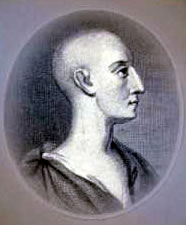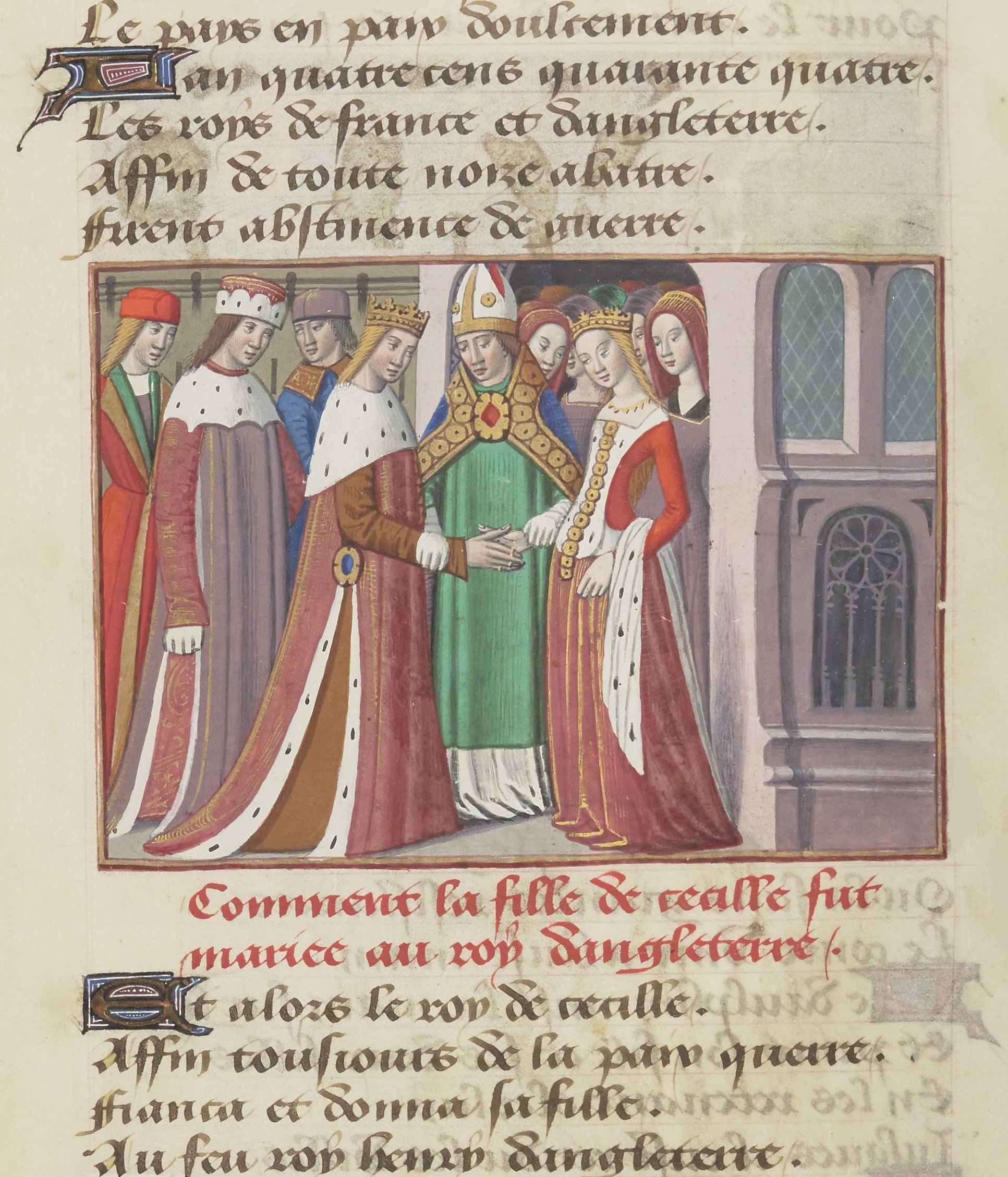|
Humphrey, Duke Of Gloucester (play)
''Humphrey, Duke of Gloucester'' is a 1723 tragedy by the British writer Ambrose Philips. It is based on the life of Humphrey, Duke of Gloucester, youngest brother of Henry V of England, Henry V. The original Theatre Royal, Drury Lane, Drury Lane cast included Barton Booth as Humphrey, Duke of Gloucester, John Mills (stage actor), John Mills as Richard of York, 3rd Duke of York, Richard, Duke of York, John Thurmond as the Richard Neville, 5th Earl of Salisbury, Earl of Salisbury, Colley Cibber as Cardinal Henry Beaufort, Charles Williams (stage actor), Charles Williams as the Richard Neville, 16th Earl of Warwick, Earl of Warwick, William Mills (actor), William Mills as the Humphrey Stafford, 1st Duke of Buckingham, Duke of Buckingham, Anne Oldfield as Margaret of Anjou, Margaret and Mary Porter (actress), Mary Porter as Eleanor, Duchess of Gloucester. References Bibliography * Burling, William J. ''A Checklist of New Plays and Entertainments on the London Stage, 1700-1737' ... [...More Info...] [...Related Items...] OR: [Wikipedia] [Google] [Baidu] |
Ambrose Philips
Ambrose Philips (167418 June 1749) was an England, English poet and politician. He feuded with other poets of his time, resulting in Henry Carey (writer), Henry Carey bestowing the nickname "Namby-Pamby" upon him, which came to mean affected, weak, and maudlin speech or verse. Life Philips was born in Shropshire of a Leicestershire family. He was educated at Shrewsbury School and St John's College, Cambridge, of which he became a fellow in 1699. He seems to have lived chiefly at Cambridge, England, Cambridge until he resigned his fellowship in 1708, and his pastorals were probably written in this period. He worked for Jacob Tonson the bookseller, and his ''Pastorals'' opened the sixth volume of Tonson's ''Miscellanies'' (1709), which also contained the pastorals of Alexander Pope. Philips was a staunch British Whig Party, Whig, and a friend of Richard Steele and Joseph Addison. In Nos. 22, 23, 30 and 32 (1713) of ''The Guardian (1713), The Guardian'' he was rashly praised as th ... [...More Info...] [...Related Items...] OR: [Wikipedia] [Google] [Baidu] |
Humphrey Stafford, 1st Duke Of Buckingham
Humphrey Stafford, 1st Duke of Buckingham, 6th Earl of Stafford, 7th Baron Stafford (15 August 1402 – 10 July 1460) of Stafford Castle in Staffordshire, was an English nobleman and a military commander in the Hundred Years' War and the Wars of the Roses. Through his mother he was of royal descent from King Edward III, his great-grandfather, while from his father, he inherited, at an early age, the earldom of Stafford. By his marriage to a daughter of Ralph, Earl of Westmorland, Humphrey was related to the powerful Neville family and to many of the leading aristocratic houses of the time. He joined the English campaign in France with King Henry V in 1420 and following Henry V's death two years later he became a councillor for the new king, the nine-month-old Henry VI. Stafford acted as a peacemaker during the partisan, factional politics of the 1430s, when Humphrey, Duke of Gloucester, vied with Cardinal Beaufort for political supremacy. Stafford also took part in ... [...More Info...] [...Related Items...] OR: [Wikipedia] [Google] [Baidu] |
Plays By Ambrose Philips
Play most commonly refers to: * Play (activity), an activity done for enjoyment * Play (theatre), a work of drama Play may refer also to: Computers and technology * Google Play, a digital content service * Play Framework, a Java framework * Play Mobile, a Polish internet provider * Xperia Play, an Android phone * Rakuten.co.uk (formerly Play.com), an online retailer * Backlash (engineering), or ''play'', non-reversible part of movement * Petroleum play, oil fields with same geological circumstances * Play symbol, in media control devices * Play (hacker group), a ransomware extortion group Concert residencies and tours * Play Tour, concert tour headlined by Spanish singer Aitana * Play (concert residency), 2022 Katy Perry concert residency Film * ''Play'' (2005 film), Chilean film directed by Alicia Scherson * ''Play'', a 2009 short film directed by David Kaplan * ''Play'' (2011 film), a Swedish film directed by Ruben Östlund * ''Play!'', a Japanese film directed by Tomoyuk ... [...More Info...] [...Related Items...] OR: [Wikipedia] [Google] [Baidu] |
Cultural Depictions Of Dukes
Culture ( ) is a concept that encompasses the social behavior, institutions, and Social norm, norms found in human societies, as well as the knowledge, beliefs, arts, laws, Social norm, customs, capabilities, Attitude (psychology), attitudes, and habits of the individuals in these groups.Tylor, Edward. (1871). ''Primitive Culture''. Vol 1. New York: J. P. Putnam's Son Culture often originates from or is attributed to a specific region or location. Humans acquire culture through the learning processes of enculturation and socialization, which is shown by the diversity of cultures across societies. A cultural norm codifies acceptable conduct in society; it serves as a guideline for behavior, dress, language, and demeanor in a situation, which serves as a template for expectations in a social group. Accepting only a monoculturalism, monoculture in a social group can bear risks, just as a single species can wither in the face of environmental change, for lack of functional respo ... [...More Info...] [...Related Items...] OR: [Wikipedia] [Google] [Baidu] |
Tragedy Plays
A tragedy is a genre of drama based on human suffering and, mainly, the terrible or sorrowful events that befall a main character or cast of characters. Traditionally, the intention of tragedy is to invoke an accompanying catharsis, or a "pain hatawakens pleasure,” for the audience. While many cultures have developed forms that provoke this paradoxical response, the term ''tragedy'' often refers to a specific tradition of drama that has played a unique and important role historically in the self-definition of Western civilization. That tradition has been multiple and discontinuous, yet the term has often been used to invoke a powerful effect of cultural identity and historical continuity—"the Greeks and the Elizabethans, in one cultural form; Hellenes and Christians, in a common activity," as Raymond Williams puts it. Originating in the theatre of ancient Greece 2500 years ago, where only a fraction of the works of Aeschylus, Sophocles and Euripides survive, as well as m ... [...More Info...] [...Related Items...] OR: [Wikipedia] [Google] [Baidu] |
West End Plays
West is one of the four cardinal directions or points of the compass. It is the opposite direction from east and is the direction in which the Sun sets on the Earth. Etymology The word "west" is a Germanic word passed into some Romance languages (''ouest'' in French, ''oest'' in Catalan, ''ovest'' in Italian, ''vest'' in Romanian, ''oeste'' in Spanish and Portuguese). As in other languages, the word formation stems from the fact that west is the direction of the setting sun in the evening: 'west' derives from the Indo-European root ''*wes'' reduced from ''*wes-pero'' 'evening, night', cognate with Ancient Greek ἕσπερος hesperos 'evening; evening star; western' and Latin vesper 'evening; west'. Examples of the same formation in other languages include Latin occidens 'west' from occidō 'to go down, to set' and Hebrew מַעֲרָב (maarav) 'west' from עֶרֶב (erev) 'evening'. West is sometimes abbreviated as W. Navigation To go west using a compass for navigati ... [...More Info...] [...Related Items...] OR: [Wikipedia] [Google] [Baidu] |
1723 Plays
Seventeen or 17 may refer to: *17 (number) * One of the years 17 BC, AD 17, 1917, 2017, 2117 Science * Chlorine, a halogen in the periodic table * 17 Thetis, an asteroid in the asteroid belt Literature Magazines * ''Seventeen'' (American magazine), an American magazine * ''Seventeen'' (Japanese magazine), a Japanese magazine Novels * ''Seventeen'' (Tarkington novel), a 1916 novel by Booth Tarkington *''Seventeen'' (''Sebuntiin''), a 1961 novel by Kenzaburō Ōe *'' Seventeen'' (''Kuraimāzu hai''), a 2003 novel by Hideo Yokoyama * ''Seventeen'' (Serafin novel), a 2004 novel by Shan Serafin Stage and screen Film * ''Seventeen'' (1916 film), an American silent comedy film *''Number Seventeen'', a 1932 film directed by Alfred Hitchcock * ''Seventeen'' (1940 film), an American comedy film *''Stalag 17'', an American war film *''Eric Soya's '17''' (Danish: ''Sytten''), a 1965 Danish comedy film * ''Seventeen'' (1985 film), a documentary film * ''17 Again'', a 2009 film whose wor ... [...More Info...] [...Related Items...] OR: [Wikipedia] [Google] [Baidu] |
Eleanor, Duchess Of Gloucester
Eleanor Cobham (c.1400 – 7 July 1452) was an English noblewoman, first the mistress and then the second wife of Humphrey, Duke of Gloucester. In 1441 she was forcibly divorced and sentenced to life imprisonment for treasonable necromancy, a punishment likely to have been politically motivated. Early life Eleanor was the younger daughter of Sir Reynold Cobham (d. 1445), who lived at Sterborough in Surrey, and his first wife, Eleanor Culpeper (d. 1422), daughter of Sir Thomas Culpeper. Mistress and wife to the Duke of Gloucester In about 1422 Eleanor became a lady-in-waiting to Jacqueline d'Hainault, who had fled to England in 1421 and divorced her husband, John IV, Duke of Brabant. In 1423, Jacqueline married Humphrey, Duke of Gloucester, the youngest son of King Henry IV, who since the death of his elder brother King Henry V was Lord Protector of the child king Henry VI and a leading member of his council. Jacqueline's divorce was only valid in England, and the marri ... [...More Info...] [...Related Items...] OR: [Wikipedia] [Google] [Baidu] |
Mary Porter (actress)
Mary Porter (died 24 February 1765) was an English actress. Life She was brought to the attention of Betterton by Elizabeth Barry, who had seen her play the Fairy Queen at Bartholomew Fair. In his company she made her first appearance in 1699, in tragedy, in which she was at her best, although she also played a long list of comedy parts. When her friends, Mrs Barry, Mrs Bracegirdle and Mrs Oldfield, had retired from the stage, she was left its undisputed queen. In 1713 she appeared in John Gay's comedy '' The Wife of Bath'' at Drury Lane. In 1724 she featured in his tragedy '' The Captives'' as Astarbe, Queen of Media. Selected roles * Mirabel in '' The Rival Fools'' by Colley Cibber (1709) * Alicia in '' Jane Shore'' by Nicholas Rowe (1714) * Lady Woodvill in '' The Non-Juror'' by Colley Cibber (1717) * Eudocia in '' The Siege of Damascus'' by John Hughes (1720) * Astarbe in '' The Captives'' by John Gay John Gay (30 June 1685 – 4 December 1732) was an English ... [...More Info...] [...Related Items...] OR: [Wikipedia] [Google] [Baidu] |
Margaret Of Anjou
Margaret of Anjou (; 23 March 1430 – 25 August 1482) was Queen of England by marriage to King Henry VI from 1445 to 1461 and again from 1470 to 1471. Through marriage, she was also nominally Queen of France from 1445 to 1453. Born in the Duchy of Lorraine into the House of Valois-Anjou, Margaret was the second eldest daughter of René of Anjou King of Naples, and Isabella, Duchess of Lorraine. Margaret was one of the principal figures in the series of dynastic civil wars known as the Wars of the Roses and at times personally led the Lancastrian faction. Some of her contemporaries, such as the Duke of Suffolk, praised "her valiant courage and undaunted spirit" and the 16th-century historian Edward Hall described her personality in these terms: "This woman excelled all other, as well in beauty and favour, as in wit and policy, and was of stomach and courage, more like to a man, than a woman". Owing to her husband's frequent bouts of insanity, Margaret ruled the kingdom ... [...More Info...] [...Related Items...] OR: [Wikipedia] [Google] [Baidu] |




